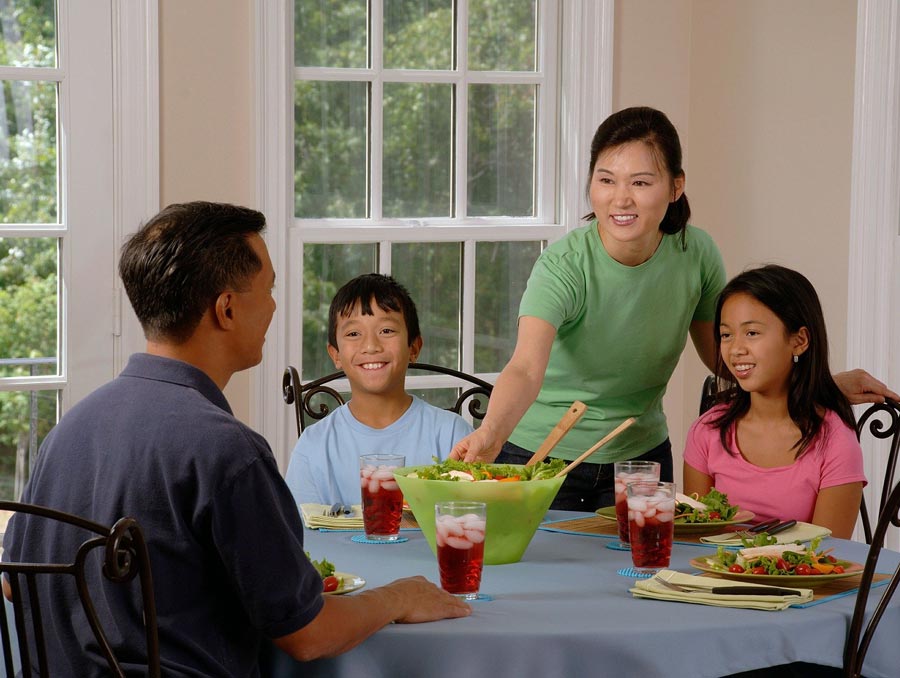With the COVID-19 pandemic and shelter-in-place posing challenges to families and households, Extension provides this information to help families avoid conflict at home, and strengthen their communication and connection for the future.
Healthy family relationships are good for us. People who are socially connected to family, friends and the community are happier, physically and mentally healthier, and live longer than those less connected. While this time of shelter-in-place orders due to COVID-19 can pose challenges to families now confined together in close quarters, this time can also provide many opportunities for strengthening family relationships. Try these ideas to use this time to foster positive family ties that will not only help you get through the shelter-in-place more peacefully, but will improve your family communication and connection long after the COVID-19 crisis is over.
Communication
- Use a welcoming tone of voice to open communication.
- Talk about challenges and brainstorm ways to address them.
- Use “I” messages, sharing how you feel without blaming others. “I” message formula: I feel (insert emotion) when (insert situation). Example: I feel frustrated when I’m interrupted.
- Listen without interrupting, then ask questions to understand.
Kindness matters
- Say, “please” and “thank you.”
- Give yourself and others grace when things don’t go as hoped.
- Apologize when you make a mistake.
- Pay attention when your children are behaving and let them know you appreciate their actions.
- Give undivided attention to your child and partner. Even 15 minutes makes a difference.
- Show concern for others’ worries and needs.
Emotions
- Talk about feelings.
- Recognize that it’s not easy to be together 24/7.
- Understand that loneliness, boredom, fear, anxiety, stress and panic are normal reactions to a stressful situation, such as the coronavirus outbreak.
- Show ourselves and others understanding, empathy, kindness and love.
- Use self-calming strategies (deep breaths, looking for the positive, stretches), and help your children use them.
Routines
- Create a daily schedule. Include mealtimes, learning, exercise, snack times, breaks and bedtime.
- Eat meals together.
- Have family members write down questions on strips of paper, and put them all in a bowl. Then, draw a question from the bowl each night and discuss it at the dinner table.
Have fun together
- Connect with others by phone, FaceTime, Zoom, Skype, Teams or other long-distance methods.
- Take advantage of the spring weather and take a walk together, ride bikes or play hopscotch.
- Play compliment catch: gather in a circle, toss a ball to a family member, everyone else gives the person holding the ball a compliment. Then, toss the ball around the family until each person is paid compliments.
- Create an obstacle course with toys and games from your garage.
- Try a new recipe and involve each family member in the preparation or cooking.
- Read a book together, discussing the characters and story and asking questions.
- Clean, organize or rearrange a cupboard, closet or room.
- Turn up the volume and have a family dance party.
- Take a virtual museum or national park tour.
- Conduct a science experiment.
With a little effort and imagination, your family can bounce back from the COVID shelter-in-place crisis and become closer. For more family activity ideas, see Extension's list of Children, Youth & Families programing.
Jill Baker-Tingey is an assistant professor and Extension educator in Elko County with Extension, a unit of the College of Agriculture, Biotechnology & Natural Resources.












